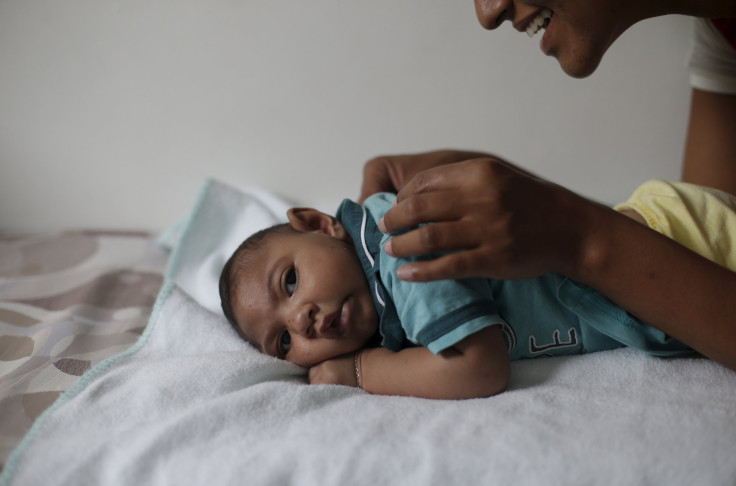Zika Virus Causes Microcephaly In Only 1% Of Births; Most Harmful To Pregnant Women In First Trimester

The outbreak of Zika virus, a mosquito-borne disease, first began in Brazil in 2014. It has since spread swiftly throughout 31 countries and territories in the Americas. Then, earlier this year, the World Health Organization declared a public health emergency of international concern after finding a link between Zika and microcephaly, a congenital birth defect. This association, however, had not been quantified, nor the potential risks estimated, until now.
To assess the possible dangers, researchers from Institut Pasteur conducted an analysis of data from a past Zika outbreak in French Polynesia, which had been the largest epidemic until the current one took its place. Their analysis concluded the risk of microcephaly is about 1 percent for a mother who becomes infected with Zika virus during the first trimester of pregnancy.
Lead author Dr. Simon Cauchemez and his colleagues suggested the risk of microcephaly is greater when mothers are infected during their first trimester, compared to second or third. The underlying reason for this greater risk is unknown, however, as public health experts still do not understand precisely how the virus enters the placenta and damages the fetal brain.
Microcephaly and Zika
Zika virus infections often lead to only slight illness, with symptoms so mild many people do not believe they have anything more than a passing cold. However, since Zika emerged in the Americas, there’s been a spike in patients who have developed Guillain-Barré syndrome — a disorder that causes acute paralysis — and babies with congenital microcephaly. The prevalence of American babies born with microcephaly drew WHO’s attention because it is larger than what’s been seen in previous outbreaks.
Microcephaly is worrying because it is a neurological disorder characterized by a smaller head circumference than normal. “The condition is associated with a reduction in brain volume, and frequently with intellectual disabilities, motor disabilities, or both, including speech impairment, poor neurocognitive outcome, and behavioural issues,” the authors wrote. “Causes include genetic or environmental factors during pregnancy that affect fetal brain development.”
Infection with rubella, West Nile virus (a similar virus to Zika), and chikungunya virus have been linked to microcephaly. Is Zika another, similar risk factor for this congenital disease?
For their risk analysis, Cauchemez and his colleagues searched medical records to identify all cases of microcephaly in French Polynesia from September 2013 to July 2015. Next, they applied simple mathematical models to assess when an infection with Zika virus during a woman’s pregnancy would increase her risk of delivering a baby with microcephaly. Importantly, they identified only eight cases of microcephaly during the study period.
Based on their models, they estimated just one in 100 pregnant women who become infected with Zika during the first trimester will have a child with neurological damage. “Our analysis strongly supports the hypothesis that infection in the first trimester of pregnancy is associated with an increased risk of microcephaly,” concluded the authors, who say similar patterns are seen with other viruses, including rubella.
Asked if circumstances in the Americas might be different in some way, potentially with higher risks for microcephaly than outbreaks occurring in different parts of the world, Cauchemez says this is an “open question.” “We cannot rule out the possibility that genetic differences between Polynesian and South American populations may generate different risks,” Cauchemez told Medical Daily in an email. “It will therefore be interesting to compare estimates when they become available for South America.”
Cauchemez and his colleagues say their results also highlight the need to inform women, whether pregnant or still trying, to protect themselves from mosquitos bites and avoid travel to affected countries.
Source: Cauchemez S, Besnard M, Bompard P, et al. Association between Zika virus and microcephaly in French Polynesia, 2013–15: a retrospective study. Lancet. 2016.



























